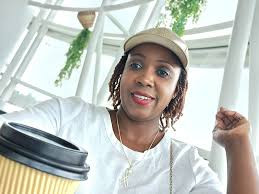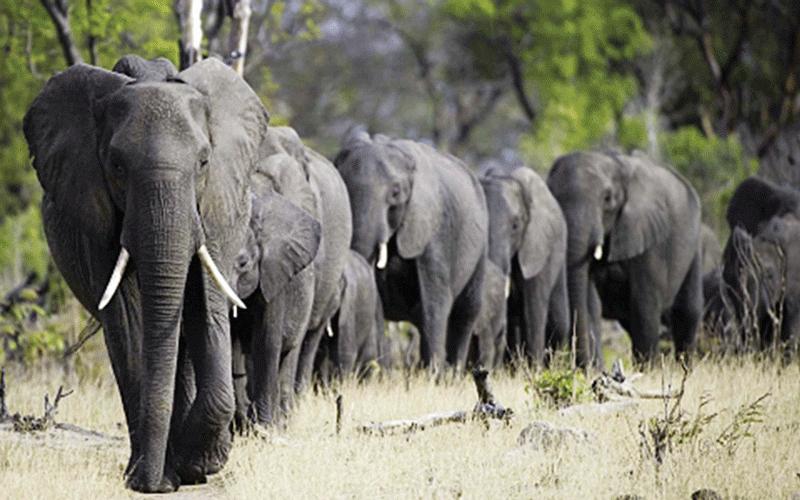
DORCAS Chamatunhu watched with a warm smile as the children laughed, played and learned together.
She remembered the day she first opened the school’s doors, driven by a passion to give these special children a chance to shine.
Twelve years later, Sun Eagles Junior School had become a beacon of hope for families seeking support and understanding of autism.
As World Autism Awareness Day approached, Chamatunhu and her team decided to create something special, a song that would celebrate the beauty of these children’s differences.
They brought in two talented artistes, Baba Shupi and Faith Makoni, to help record the song.
The result was a powerful melody that spoke directly to the hearts of those who listened.
This year, the focus shifted from mere awareness to a heartfelt call for acceptance.
The air was filled with anticipation as the school prepared to launch a special song aimed at uplifting children with autism and other learning disabilities.
“It’s no longer awareness, it’s now acceptance. So I was educated today, and it’s in conjunction with our song release,” Chamatunhu said.
“We came up with a song for mainly autistic children, but in general, it’s a song that is dedicated to children with learning disabilities, even the physical disabilities as well.
“So we came up with a song, and that’s the song that we launched today, the audio and the video as well. So look out for the video.”
Chamatunhu shared her journey of working with children with autism for over seven years.
Her eyes sparkled with pride as she recounted the touching transformations she had witnessed.
One particular story stood out of a girl who had once been unable to walk due to fear of the outside world.
With patience and encouragement, Chamatunhu and her team introduced her to the joys of outdoor play.
Now, she was the happiest child, eagerly running towards the playground, her laughter echoing in the air.
“There’s also one particular girl who came here, she couldn’t even walk. But it was mainly because I think she was not being exposed to the outdoor world. So she was even afraid to go,” Chamatunhu said.
“When we would say let’s go out to the playground, she would not co-operate. And then we realised she needed to be out there as a routine, we started having those routines with her, taking some walks with them around the school. And then now she’s like the happiest person to go outdoor play.”
The song, a collaborative effort featuring artistes Baba Shupi and Faith Makoni, resonated deeply with the audience.
Makoni, a dedicated staff member, captured all that she felt inside her heart in lyric form, capturing the essence of the struggles and triumphs faced by children with disabilities.
As the audio and video premiered, the crowd was moved, tears of joy and hope streaming down their faces.
The song was not just a melody; it was a powerful anthem of acceptance and love.
Chamatunhu spoke passionately about the impact of their work on the parents of these children.
“They are so grateful for the job that we are doing,” she said, her voice filled with emotion.
The parents, once hesitant and fearful, now found solace in the school after noting the progress their children were making.
They witnessed their children, once isolated, transformed as a result of a nurturing environment.
The school had become a beacon of hope, a place where children learned to embrace their uniqueness and develop their skills.
As the day progressed, the atmosphere was electric with support from the community.
Influencers and local artistes rallied around the cause, amplifying the message of acceptance.
Chamatunhu emphasised the importance of community involvement, urging everyone to recognise the potential within each child.
“It has been an amazing experience taking care of these children and learning how they behave around people,” she said.
“It’s been a journey, and we are still learning. We are still working with them and still trying to understand how they co-operate, how they operate even psychologically.
“And we are managing to work with them and give them direction in terms of education, as well as social interaction with the rest of the other children.
“So in short, what are some of the touching moments, awakenings, I can say, that you’ve experienced with children with autism? Okay, so some of them actually come not potty trained. And most of them that come here, I can safely say we have managed to potty train them.”
She added: “They now know how to use the bathrooms by themselves. We then assist them to clean them up and all that.
“Let’s not close them in our homes, bring them to schools like Sun Eagles, where they can learn and grow.”
The stories shared, the laughter, and the tears all intertwined to create a tapestry of hope for the future.
Chamatunhu and her team have stood united, ready to continue their mission, knowing that every small victory is a step towards a brighter tomorrow for children with autism and their families.
Most of the students can now even execute some of the class activities that they could not the first time they went through the doors of the institution.
Petronella Taingenhamo, whose child was also diagnosed with autism, shared her experience the day her son was diagnosed with autism.
Her world was turned upside down in September 2021 when her two-year-old son, who she had prayed for and longed for, began experiencing seizures.
The once-healthy child suddenly collapsed, and Taingenhamo’s life was forever changed.
The seizures were just the beginning.
After a series of tests and doctors’ visits, Taingenhamo’s son was diagnosed with autism.
The news was devastating.
Taingenhamo had never heard of autism before, and the thought of her child’s future was daunting.
As she navigated the complex world of autism, she discovered that her son’s condition was not something he was born with, but rather something that developed over time.
The regression was a type of autism that was not immediately apparent at birth.
“My initial reaction was one of shock and grief,” she said.
“I felt like the world was crumbling around me.
“But as I began to learn more about autism, I realised that I was not alone.
“There were other parents out there who were going through similar experiences.”
With the support of her husband’s family, Taingenhamo began to find her footing.
She joined online groups and forums, where she connected with other parents who were on a similar journey.
She learned about the different types of autism and the various ways to support her child.
One of the most significant challenges Taingenhamo faced was finding the right educational support for her son.
In Zimbabwe, there are limited resources for children with autism.
But Taingenhamo was determined to give her child the best possible chance at a happy and fulfilling life.
That’s when she discovered Sun Eagles, a school that specialises in supporting children with autism.
The school gave Taingenhamo hope.
She realised that there were others out there who understood her child’s needs and were equipped to support them.
During the production of the autism song project, Baba Shupi, the renowned Afrobeat artiste, walked into the studio with a smile.
He also worked with the school to produce the song and he revealed his love towards children and doing it for a cause for the special project with Sun Eagles.
The project was to record a children’s song, and Baba Shupi was excited to lend his voice and talent.
“I’m in love with children. When I’m invited to support a cause, I’m always there,” he said.
As he worked with the kids, Baba Shupi realised that they were not so different from him.
“Autism is not a disease. It’s just a different way of thinking. And as a musician, I know that creativity is what sets us apart,” he said.
The song, titled Ndakakosha, was a fusion of Afrobeat rhythms and kid-friendly lyrics.
It was a call to action, urging people to come together and support one another.
“Our society needs to open up,” Baba Shupi said.
“We need to unite and work together to create a better tomorrow.”
Baba Shupi’s experience working with the children with autism had a profound impact on him.
He realised that music had the power to bring people together, to break down barriers and create a sense of community.
And he knew that he would continue to use his platform to spread this message of unity and acceptance.
Autism, also known as Autism Spectrum Disorder (ASD), is a neurological and developmental disorder that affects how people perceive and interact with the world around them.
It’s characterised by differences in communication, social interaction and behaviour.
Health and Child Care deputy minister Sleiman Timios Kwidini highlighted the government’s efforts in addressing the needs of individuals with autism and disabilities.
“While we don’t have specific initiatives in place, we are actively addressing the challenges that have arisen,” he said.
“Our health policies are designed to be inclusive and non-discriminatory.”
Kwidini also acknowledged that the government may not always be able to provide the level of support it would like, but emphasised the commitment to considering the needs of individuals with disabilities.
“Although we may not always be able to provide the level of support we would like, we are committed to considering the needs of individuals with disabilities,” he said.
Looking ahead, Kwidini outlined plans to improve infrastructure and make it more accessible.
“Currently, we don’t have specialised facilities, but as we continue to develop and construct new infrastructure, we are incorporating accessible features to accommodate individuals with those conditions and disabilities,” he said.
According to the World Health Organization (WHO), approximately 1 in 100 children worldwide has autism, although reported prevalence varies substantially across studies.
Autism often has an impact on education and employment opportunities, and the demands on families providing care and support can be significant.
The causes of autism are still not fully understood, but research suggests that there are multiple factors, including environmental and genetic factors, that may contribute to the development of autism.
The United Nations, in collaboration with the Institute of Neurodiversity, commemorated the 2025 World Autism Awareness Day observance, which took place running under the theme Advancing Neurodiversity and the UN Sustainable Development Goals.
The event brought together global experts, policymakers, and autistic voices to discuss and promote inclusive policies and practices that drive positive change for autistic individuals worldwide.










